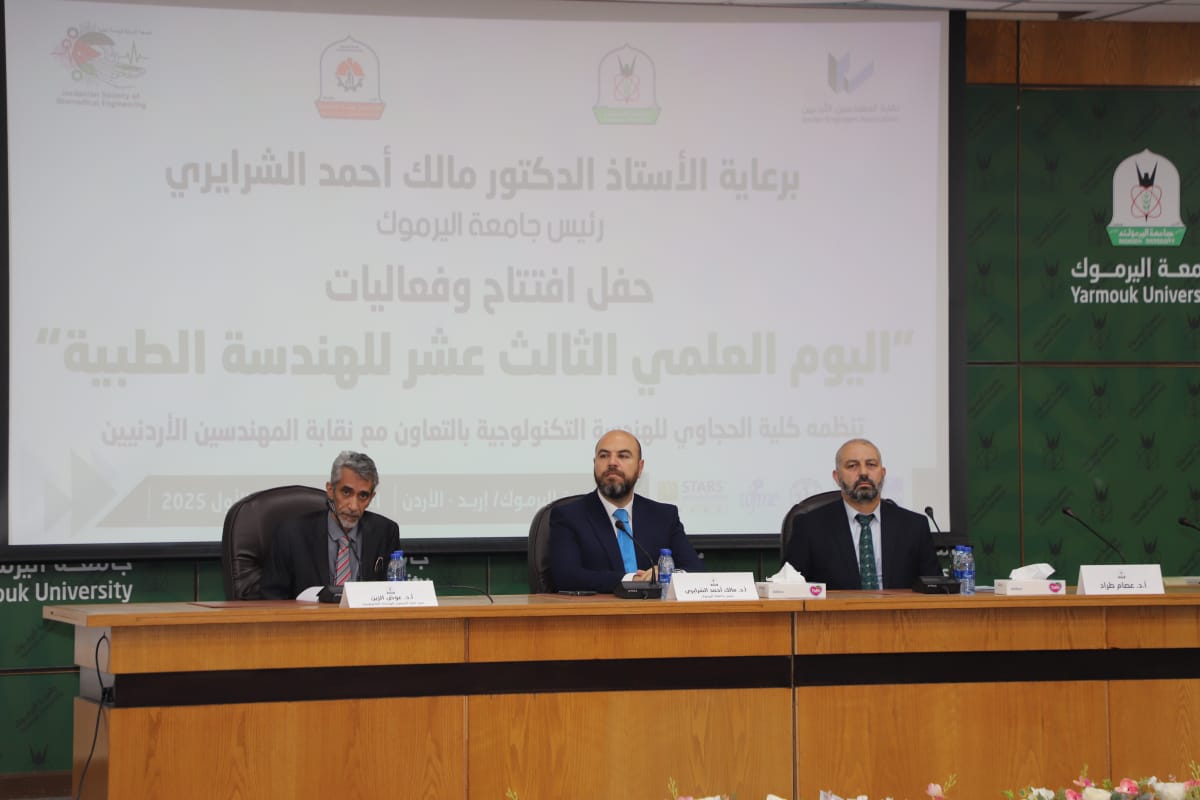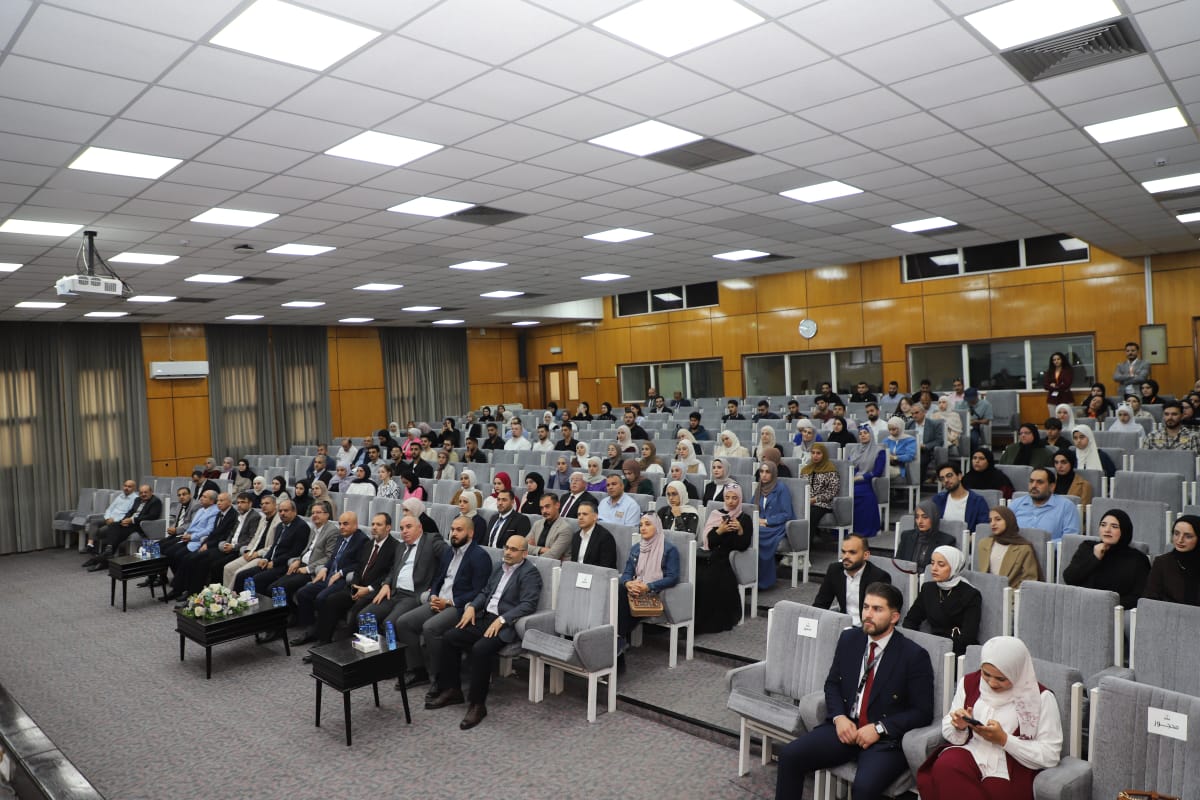
Under the patronage of Yarmouk University President, Professor Malek Al-Sharairi, the university inaugurated the activities of the "13th Scientific Day of Biomedical Engineering," organized by Al-Hijjawi Faculty of Engineering Technology in cooperation with the Jordan Engineers Association (JEA).
In his opening speech, Al-Sharairi stated that this Scientific Day is the outcome of joint cooperation between Yarmouk University, represented by Al-Hijjawi Faculty of Engineering Technology, and the Jordan Engineers Association, represented by its Electrical Engineering Division. This cooperation aims to realize the shared vision of supporting all efforts that advance scientific research and build knowledge across all vital sectors.
He added that this Scientific Day provides an opportunity to exchange insights, pose questions, and enhance scientific communication among experts, stakeholders, and students. Furthermore, it serves to keep pace with scientific development and open new horizons for scientific research and innovation.
Prof. Al-Sharairi urged Al-Hijjawi students to make the most of the day's activities, which will enhance their capabilities and develop their skills in their field specialization, thereby strengthening their competitiveness in local, regional, and international labor markets. He also clarified that nowadays, biomedical engineering is no longer a luxury or a field of limited impact; rather, it is a science advancing rapidly toward changing the meaning of healthcare.
He continued: "Engineering capabilities are now directed toward increasing the effectiveness of diagnosis and treatment, and inventing diagnostic and therapeutic solutions that make a difference in patients' lives, in addition to incorporating Artificial Intelligence (AI) systems into many of these tools."
For his part, the Dean of the Faculty, Prof. Awad Al-Zaben, delivered a speech in which he affirmed that this Scientific Day has become a public call to realize that learning does not stop at courses studied or experiments conducted in laboratories. Instead, learning thrives when tools are innovated, potentials are unleashed, and horizons for innovation are broadened.
He pointed out that biomedical engineering is no longer about tools being manufactured or machines being assembled; rather, it is about life being granted, hope being revived, and wellness being formulated by the engineer's mind and the doctor's hand.
Describing it as a precise science that merges the understanding the structure of the human body and its complexities with the capabilities of modern technologies to create devices that aid medicine in diagnosis and treatment.
In turn, the representative of the Jordan Engineers Association and Dean of the Faculty of Engineering at Jadara University, Dr. Issam Trrad, stressed the importance of the Scientific Day, given the lectures and scientific papers it includes, which keep pace with the requirements of the modern era. He noted that one of the most important features of the event is that it is held at Yarmouk University, the scientific edifice that has played and will continue to play a role in embracing scholars. He clarified that the JEA has a strategy of partnership with Yarmouk University and other universities to bridge the gap between educational outputs and the requirements of the local, Arab, and international labor markets.
The Scientific Day included four academic sessions with the participation of several faculty members and experts in the field of biomedical engineering. The first session was titled "The Use of Artificial Intelligence in Medical Imaging System," the second "Latest Technological Developments in Biomedical Engineering," the third "The Use of Artificial Intelligence in Healthcare," and the fourth "Clinical Engineering."




